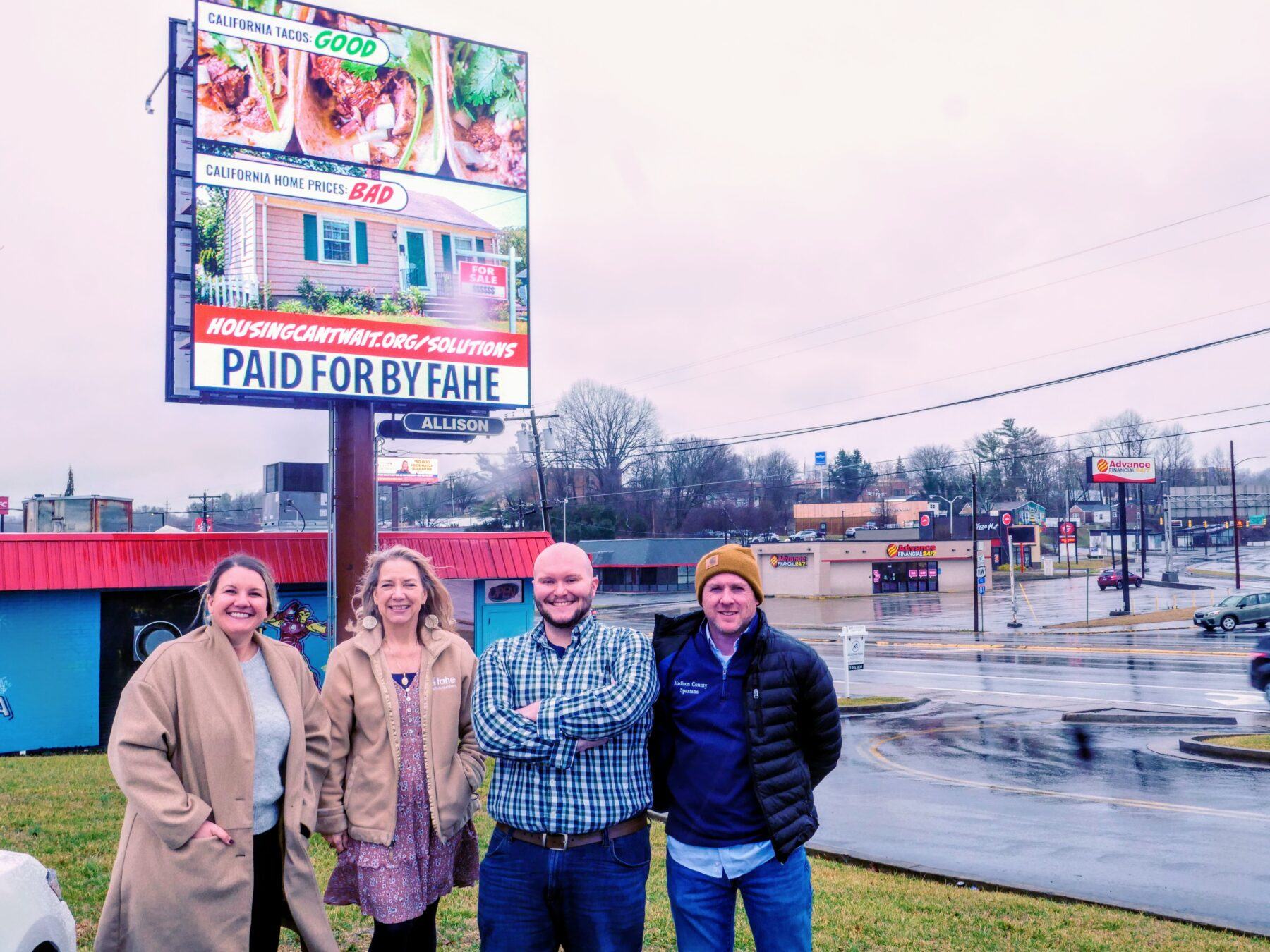
Positioning Fahe as the First Call for Housing Policy
At the start of each year, state legislators convene to set policy priorities and budgets. For Fahe’s advocacy work, this is a critical time to engage policymakers in conversations about housing solutions.
“This is when we can get in front of legislators who are actively discussing challenges and opportunities in their communities,” says Maggie Riden, Fahe’s Senior VP of Advocacy.
While 2025 is an off-budget year in Kentucky and Virginia, it remains a key opportunity to assess past investments and shape future policy discussions. “Fahe is ready to present our housing priorities in ways that grab the attention of policymakers and their staff—so they take these ideas back to their colleagues,” Riden explains.

Amplifying Our Message with HousingCan’tWait.org
With support from Truist, Fahe is launching strategic outreach efforts—billboards, social media, and periodical ads—directing audiences to HousingCantWait.org, where state-specific messages and calls to action are now live.
Each state page highlights critical policy needs:
- Kentucky: Modernizing the state’s Affordable Housing Trust Fund by increasing allocations from the recordation tax.
- Tennessee: Advocating for investments in workforce and missing middle housing to address shortages for households earning 80-120% Annual Median Income (AMI).
- Virginia: Strengthening economic opportunity in Southwest Virginia by aligning housing development with regional growth.
“These pages give a clear picture of each state’s housing landscape and why action can’t wait,” says Riden. “Whether you’re a policymaker, funder, or community member, the information is tailored to help you engage.”
Originally launched in response to flooding in Eastern Kentucky, HousingCantWait.org has expanded to serve a broader audience, with plans to grow further. “We’re in a testing phase now, with plans to create state-specific pages for Alabama, West Virginia, and potentially Maryland,” Riden adds. “From there, we’ll build on our media outreach to increase impact.”
A Long-Term Advocacy Strategy
Fahe’s policy work is designed for long-term impact, typically taking three to five years to drive change. “To achieve real policy wins, we must establish ourselves as the go-to experts,” Riden says. “Our members already have the local expertise and solutions—our job is to ensure policymakers recognize them as vital allies.”
By strengthening these connections across all states, Fahe’s ultimate goal is clear: When policymakers think about housing and community development, Fahe should be their first call.
